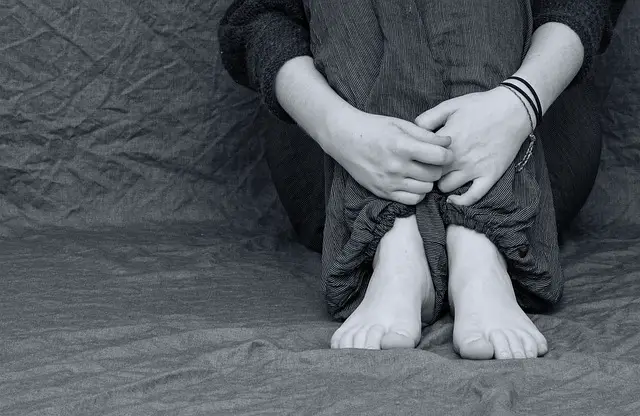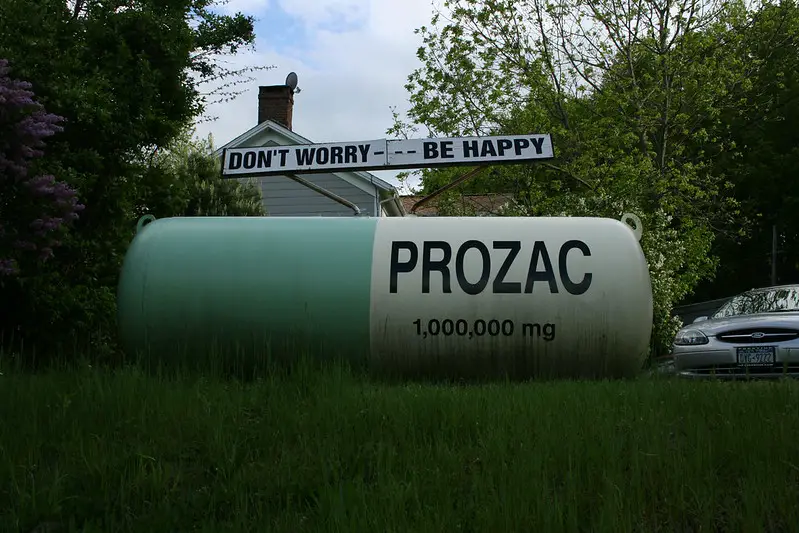There’s probably a good probability that you, or a person you know, has struggled with depression. The sad truth is that there are a lot of features of this present chaotic, competitive and isolating culture that adds to making depression an all-too-common aspect of the present life.
Johann Hari, who is the author of this book claims that the key reasons for depression have been misinterpreted for quite a while now, all thanks partly due to strong pharmaceutical corporations highlighting the claim that depression is mainly caused by a so-called “chemical imbalance” in the brain. As we will get to know in the following chapters this isn’t the common cause of the daily depression that a lot of people suffer.
The actual causes aren’t biological factors, but unsolved trauma, isolation, misplaced values around position and money or bad working surrounding. However, do not despair as we will also look at how all these factors can be solved or improved, and that a life of depression can be changed into a successful life of hope and goodwill.

1 – Different from the arguments said by pharmaceutical corporations, depression is not caused by a chemical imbalance.
Johann Hari the author of this book, was just 18 years old when he used his first-ever antidepressant drug; however, as at then, he’d already experienced depression for years.
Even as a small child, Hari had his own instants of being in the room alone, crying uncontrollably. He got to understand that he was having symptoms of depression. When he went to see his doctor for treatment, his doctor told him that the reason for depression is because of a chemical imbalance in the brain, which can be lessened with antidepressant drugs.
For Hari, this involved taking Paxil, one of the numerous drugs on the market categorized as selective serotonin reuptake inhibitors (SSRIs), which asserts to increases the serotonin levels of a person to that of a “normal,” non-depressed individual.
Similar to a lot of patients using SSRIs for the first time, Hari felt some initial relief, however, that didn’t last long. Therefore, his doctor increased his dose which caused another moment of relief, then relapse into depression and therefore another increase in the dosage.
One thing Hari was sure of was that Paxil was making him gain weight and sweat more than normal. Finally, during his 30s, Hari was confronted with the truth: After more than 10 years of using Paxil, Hari was still depressed. After this understanding, he went on a widespread period of research on the subject of depression and antidepressants, and what he found was really surprising.
After talking to a few researchers, Hari discovered that there was only a small proof to confirm the notion that a chemical imbalance leads to depression, or that SSRIs are an effective drug for people experiencing depression.

During the mid-90s, Irving Kirsch a Harvard professor started looking at the research on antidepressants. He discovered that the clinical tests published by pharmaceutical companies were usually twisted so that their medications can be released.
For instance, during the clinical testing for Prozac 245 patients were tested. However, when the results were published, just the 27 patients that felt positive results were stated. As for Paxil, the unabridged outcomes of one clinical test revealed that patients responded better to the placebo than to the real medication.
Also, Kirsch did research on the claims of an association between depression and the neurochemical serotonin. He saw the link to be an “accident of history” where scientists had misunderstood results and pharmaceutical companies had held onto this misinformation in order to sell drugs.
Joanna Moncrieff, the professor at the University of London said to Hari that, when we talk about anxious and depressed brains, “There’s no proof that there’s a chemical imbalance.”
2 – Any effectiveness in an antidepressant drug is probably as a result of the placebo effect.
It was hard for Hari to trust what he continued hearing from one researcher to another that drug companies have been telling a deceiving story to the innocent public and after uncountable tests, antidepressant drugs have been proven to be of insignificant use.
This indicates how significant a story – deceptive or otherwise – is in making a placebo effect.
The influence of the placebo effect is very well understood in the medical community. One popular story is of Henry Beecher, a WWII physician who was short of morphine while attempting to treat an endless supply of wounded soldiers. He then decided to say to his patients that he was administering morphine to them when as a matter of fact he was administering a placebo of sugar water. Extraordinarily, the injections were able to relieve the pain and calm his patients.
Perhaps more remarkable is the story of Haygarth’s wand in 1799: Which is a metal rod that was sold to patients as a miracle cure. All you required to do was to only wave the wand over your ailment and trust that you were healed! Unquestionable, patients had faith in the miraculous story, their ulcers were healed and their inflammation was calmed – at least for a while.

This indicates how strong the influence of belief can be. Observing the data around antidepressant drugs, it would appear that medications like Paxil and Prozac aren’t that different from Haygarth’s wand. Individuals that are depressed are regularly told they have small serotonin in their brain and that the drug will increase it, which will, in turn, make them feel better. Just like the allegedly powerful wand, these outcomes in an initial advantage that will ultimately wear off.
You might wonder that since the placebo effect actually offers some amount of relief, this misinformation isn’t really bad. However, think of the several side effects –like weight gain and sexual dysfunction – which enables those temporary advantages to appear all the more doubtful.
If a chemical imbalance isn’t the cause of depression, then what’s causes depression? We will see in the following chapter, there’s more than one cause for experiencing sadness and hopelessness.
3 – There is a minimum of nine common reasons for depression, based on the notion that depression is a result of hard life situations.
If a chemical imbalance isn’t the cause of depression, what’s the main cause?
From the author’s experience, and from speaking with researchers on their widespread studies on depression, the author discovered nine main causes of depression. What links these entire causes is the basic understanding that depression is mainly caused by life conditions.
George Brown theorized in the 1970s that the reason for depression might be dual: Something happening in the brain and something happening in the life of the person. To see if he was correct, he did an extensive study that involved 144 women who’d already been diagnosed with depression, and extra 344 women who’d never had any disorder. Significantly, the participants he used were all from the same economic background.
If the reason for the depression was only as a result of serotonin levels, then the findings should indicate that the life experiences of the person have no implication on their mood. Buts, Brown found that 68% of the group that had been diagnosed with depression had a disturbing incident in their lives recently. He discovered that depressed women were three times more likely to experience what he named a “long-term chronic stressor” in their lives.

Also, Brown’s study explains the differences, or lack thereof, between those that are diagnosed with “reactive depression,” the clinical term for an event-caused depression – and “endogenous depression,” which is the way in which an alleged chemical imbalance is classified. Remarkably, the outcomes revealed that each group had the same extent of negative experiences in their past.
Meaning, Brown was shocked to discover overwhelming evidence that the main reasons for depression were psychological and social, not biological. In 1978, Brown published his findings and although other studies conducted by social scientists from the globe supported Brown’s findings, a lot of the medical community has stayed stubbornly concentrated on neurotransmitters.
4 – The first key reason for depression is a disconnection from significant work – something that’s improved when employees feel empowered.
From his research and numerous interviews, Hari discovered nine reasons, or disconnections that causes depression, and seven methods for people to reconnect.
The first disconnection is from significant work.
This is maybe best shown in the amazing statistic that, between 2011 to 2012, just 13% of people identify themselves as being “engaged” by their work.
One of the most detailed studies to see how our work affects our health was done by psychiatrist Michael Marmot in London during the 1970s.
After observing 18,000 British civil servants, Marmot found that it wasn’t the bosses with huge responsibilities who were more susceptible to heart attacks –however, those bosses were four times less likely than the others to develop a heart attack.
In order to determine who experienced stress more and depression, Marmot observed people that have the same pay level, status, and even the same office space. The outcomes were obvious: those with less control and power to make their own choices were more likely to be depressed.
How severe can a lack of control get? Years later, Marmot was told to assist the British tax office when the staff was committing suicide at disturbing rates.
The issue was that there was a lot of work to do and the workers could do anything to stop it. Also, there was no connection between effort and reward – no one bothered if the employees worked hard or irresponsible. As Marmot noticed, the whole sense of powerlessness became really unbearable that people were committing suicide.
Luckily, there are methods to reconnect with significant work. The author encountered the owners of a bike shop In Baltimore who has an answer to the issue of powerlessness: democracy.

Josh, his wife, and a small group of friends all left their work in order to become equal partners in Baltimore Bike Works – a new business formed after the “cooperatives” that had been common in the US before the late 1800s. They had meetings every week where every significant decision was voted on, and anyone could bring up any problem to talk about.
All the people Hari talked to said they feel less anxiety and depression at the Bike Works than they had while they were working in top-down jobs. Meredith, Josh’s wife, wasn’t experiencing sleepless nights anymore, accompanied by feelings of fear and nervousness that had overwhelmed her time at a nine-to-five desk job.
5 – The second reason for depression is a disconnection from other people. The key is to nurture mutually beneficial relations.
The US, as well as the UK, have a strong emphasis on individuality, with books that concentrate on “self-help” and people sharing sayings on Facebook such as “Only you can help you.” However, this individualist mentality has a habit of disregarding the extensive outside influences that have an effect on our emotional being.
One of the main influences is the relationship we have with other people, which takes us to the second important cause of depression: a disconnection from others.
Loneliness can have a huge role in feelings of stress and depression. John Cacioppo a Neuroscientist revealed how loneliness directly adds to increased heart rates and higher levels of the stress-related hormone cortisol. During his studies of the 1990s, Cacioppo discovered that acute loneliness leads to as much stress as being hit by a stranger!
What makes loneliness particularly risky is that it can turn a bad condition to even worse. When we are sad, we withdraw into ourselves, the loneliness only contributing to the anxiety.
In order to reconnect with others, we should acknowledge our in-built tribal nature and become part of a mutually useful community that shares, supports and defends one another.
One remarkable case of people benefiting from togetherness occurred in the Berlin neighborhood of Kotti, abbreviated from Kottbusser Tor, the name of the subway station which the district was named after.
It started in 2011 when rents in the area increased. An elderly wheelchair user called Nuriye was facing eviction, therefore she posted a note mentioning her aim to kill herself instead of losing her place. Neighbors saw the note, and immediately blocked the road in front of their complex and started protesting against the rent increase.
Conventional Turkish Muslims, gays, and punks all united, naming their movement Kotti & Co. Once the movement was happening, the neighbors saw that rent control was only one method in which they could help each other.

Before Kotti & Co., one high student was on the edge of failing in school, however, after he joined the movement, he saw a neighbor who assisted him with his homework and was able to put his grades under control.
In the group’s members was also a homeless Turkish man named Tuncai. One day, the group learned that Tuncai had been taken back to a psychiatric facility with force. Members of the group united to release him from the facility, as they were all aware that being part of Kotti & Co. had given him the determination and assisted him to improve.
6 – The third reason for depression is a disconnect from significant values, therefore don’t ignore what’s significant.
A recent ad campaign in London contained posters of a slim and tanned woman with the question “Are you beach body prepared?” People were really annoyed by the ads that the campaign was stopped, and graffiti started coming up on other ads that read “Advertising nonsense in your head.”
As it appears, a lot of studies have backed up this opinion by displaying how our consumer-driven society has made us disconnected from significant values and, due to that, depressed.
At the heart of this disconnect are two kinds of values: intrinsic and extrinsic.
If you play piano for the pleasure it carries, you’re driven by intrinsic value. However, if you play the piano just for the money, then you’re driven by extrinsic value.
Similarly, the main aims of your life can also be swayed by both kinds of values. A lot of studies demonstrate how advertisements drive us toward extrinsic values, which are confirmed to be less rewarding.
Tim Kasser a psychologist has done various studies displaying how the more consumer-minded and extrinsic-valued people are, the more depressed they get. Whereas, those who concentrate on intrinsic goals, like assisting others or becoming better musicians for the complete joy of it, witnessed an important improvement in their mood.
You may be wondering now: “Pause for a moment, buying a new iPhone does bring me happiness!” However, ask yourself a question: Why does it make you glad?
When we’re obsessed about buying new devices or other consumer goods, it’s frequently because we want to look cool or impressive to others. This shows that our happiness is dependent on outside influences and opinions, which isn’t a steady, happy way to live.

Also, when we pursue promotions and more money, we’re typically doing this at the cost of more intrinsically significant things such as relationships and spending time with loved ones.
The solution to reconnecting with significant values is to be conscious of your motivations and to keep asking where you’re spending your time and money. This will enable you to concentrate on what’s really important to you.
Tim Kasser has taken his research to heart by looking for a peaceful ten acres of land in Western Illinois where his family can concentrate on gardening, activism, volunteer work and the things that improve their lives.
7 – The fourth reason for depression is a disconnect from the trauma that happened during childhood.
There have been several talks about an “obesity epidemic” for years, with the conversation regularly centered around learning better nutritional routines and exercising more. But, what goes mainly unstated, is the part that depression and trauma can have in both weight gain and depression.
Dr. Vincent Felitti did a remarkable study during the 1980s on obesity that displayed how a disconnect from our past traumas could cause depression.
Fascinatingly, Dr. Felitti didn’t start out to make this association. Rather, his study included observing if an intense fasting diet could assist a group of obese people to immediately and safely lose weight. Initially, the outcomes were remarkable: One woman called Susan went from weighing 408 pounds to 132 pounds. However, Dr. Felitti was shocked when Susan, and others, immediately adding weight back.
Detecting that there was something else happening, Dr. Felitti started talking to the participants about their lives. He was surprised to find that 55% of them had cases of sexual abuse in their past and that it was instantly after these events that they started gaining weight. Susan began adding weight after she’d been raped by her grandfather when she was just 11 years old.
But why add weight? As some of the participants said: “Overweight is ignored.” Meaning, being bigger made them feel safe from unwanted male consideration.
After Dr. Felitti increased his research to cover 17,000 people in the San Diego region, the evidence also displayed that the more traumatic childhood you had, the more likely you were to be depressed. From the study, emotional abuse is the most powerful factor – even more than sexual abuse.

These findings were shocking to both medical journals and public health agencies since it was another attack against the common belief that depression was a result of the dysfunction of the brain.
The study indicated that the right question to ask is not “What’s wrong?” but “What happened?” By accepting and talking about old trauma, people can reconnect with the disturbing events in their lives and start to move past them.
The author also has his own traumatic past when he was just a child, he was abused and strangled with an electrical cord. Once he started to accept this, he was able to put a stop to the feeling that he was worthy of all the bad things that occurred to him and that he was guilty of them.
8 – The fifth reason for depression is a disconnection from status and respect while the sixth is a disconnection from nature.
People don’t watch baboons and bonobos only because it is fun to watch. These animals are our actual primate cousins and have a lot to teach us about human nature.
Firstly, there’s the concern of how significant status and respect are to our happiness, and how a disconnection from these can cause depression.
Baboons live in a stern order: the alpha male can take food from anyone he wants, number two collect food from number three, and so forth until you reach the poor baboons at the bottom.
By examining the cortisol levels of baboons, Robert Sapolsky a researcher discovered that those at the bottom had very high levels of stress. Also, he discovered that the alpha male had huge amounts of stress when they are being challenged by another male.
For humans, there are a number of means in which we can be made to feel inferior – as well as being exposed to ads that propose we’re nothing without money to spend and the perfect body.
Also, various studies have displayed that countries with huge gaps in wealth, such as the US, have higher levels of depression than countries where wages are closer to being equal, like in Norway. It’s left to you as a society to form stressful, depressing surroundings with strict hierarchies, or ones in which status and respect are more equally applied.

Another reason for depression that can be seen in primates is a disconnect from nature.
Isabel Behncke has studied “the nature of human nature” since her 20s and observed how bonobos in the wild handle stress. When they stop grooming and sit away from each other, it’s obvious that they’re depressed. However, when they’re removed from nature, things get really worse: they’ll scratch till they start bleeding, and rock back and forth.
Also, for humans, nature is significant. Studies demonstrate that people in greener areas experience less stress and despair, while engagement in nature reduces obsessive thoughts and improves concentration.
9 – The seventh reason for depression is a disconnection from a hopeful and safe destiny.
If you’ve experienced a phase of depression, there’s a good probability that you thought it wasn’t going to end. This is one of the features that make depression really powerful – you can’t overlook it. That type of lack of ability to see a future coincide with a disconnection from feelings of hope and safety.
One of the key causes, why we feel hopeless about the future is the disconnection from our sense of control over our future.
There’s been a prevalent of suicides in Native American communities in Canada. Michael Chandler a psychologist observed this, he discovered that the suicides were happening among the residents of government-controlled reservations – communities where the government is in charge of the schools, implement the laws and offers no control to the residents.
Also, Chandler noticed that some reservations had succeeded to recover their land. In these communities, the Native Americans are in charge of the elections, police, health services and could also recover their native languages by having them taught in schools. Chandler saw that the people were in charge of their future. The increase in suicide didn’t happen there.
Disconnect from a sense of security is another strong factor that has an impact on our well-being.

This is another illustration from Canada: In the year 1973, the Manitoba town of Dauphin was home to an experiment that offered people with at least an automatic minimum wage of $19,000 a year in current money. It 1979, it was removed by a new conservative government that was dissatisfied with the idea, although 1800 boxes of data on this experiment still occur.
The data displays that in only three years, there was a 9-percent fall in people searching for medical assistance for mood disorders. People who stayed there at the time recollect how the money served as an insurance policy for a farming town whose destiny depended hugely on canola crops.
Once the automatic wages occurred, occupants were less concerned about their children’s futures and could make use of the money to access the education they wouldn’t have been likely to afford.
Meaning, the automatic minimum wage assisted people to reconnect with their sense of the future and with significant work.
10 – The last reasons for depression are genes and variations in the brain; however, their impact is small.
Despite the fact there’s a strong example against the story of a chemical imbalance in the brain being the reason for depression, this doesn’t signify that there aren’t any biological causes for depression.
Our brain is regularly changing. In science, this is called neuroplasticity. The case may possibly be that brains change in a type of manner that supports depression.
We can notice proof of neuroplasticity all around us. For instance, if you’re a London cab driver requiring know the entire road in the city, the part of your brain connected with spatial recognition will develop stronger.
Similarly, if you use more time engaged in feelings of fear and despair instead of happiness and pleasure, the parts associated with positive feelings will deteriorate, while the ones connected with negative feelings will improve.
You may probably have heard the saying that depression runs in the family – that it’s in your genes and you’re destined to experience the exact fate as your depressed relatives. However, this is totally exaggerating the real nature of genetics.

Research reveals that genes only contribute to 37% of cases of depression. To put that into perception, height is 90% determined by your genes and that percentage reduces to zero when it comes to determining your language. Therefore, genetics has a moderately small impact when we are talking about the causes of depression.
To be more accurate, researchers discovered a variant of a gene called 5-HTT that can make you more vulnerable to depression. It’s much more like having a gene that can make you vulnerable to weight gain – it’s important, however, it isn’t leading to the weight gain.
Researchers believe that there a lot of reasons why people hold on to the notion of there being biological reasons for depression.
In particular, there’s still a stigma involved in suffering from depression. Therefore, when someone challenges you about it, it’s regularly simpler and easier to point your suffering to biology instead of a mixture of factors in your life.
11 – A solution that unites people to one another, and to significant work is social prescribing.
We’ve looked at the nine causes of depression that Hari found, and for the majority of these disconnections, there’s a clear reconnection: reconnecting to other people, significant work, significant values, a hopeful future and accepting and overcoming trauma.
The last two reconnections concern methods of actively fighting depression. The first one is through something known as social prescribing.
By the time Lisa saw Dr. Everington, Lisa had stopped working as a nurse in a London hospital. After complaining that her colleagues were abusing the patients in the psychiatric ward, Lisa’s co-workers turned against her, making her job intolerable. Lisa grew up in a home where she’d been aggressively been bullied, she couldn’t withstand being bullied at work. Therefore, one day she stopped going to work.
Around that period, Lisa began taking Prozac, which made her add weight. For the following seven years, she continued to feel awful about herself and she only got out of her house to buy junk food. One day, she had the courage to take her doctor’s advice and see an East London clinic managed by Dr. Sam Everington.
Rather than giving her more drugs, Dr. Everington offered Lisa a social prescription which included working with a small group of other disconnected people to develop an abandoned part of London wasteland into a healthy garden. Things began tentatively, with people being a bit guarded around one another. However, they’d all accepted to take on the challenge and learned together the fundamentals of gardening and how to organize the abandoned place.

By doing this, they opened up to one each other and noticed that they had very much in common. Lisa would certainly not have thought that she had a related life to that of an elderly Asian man, still, he was also bullied at his place of work.
There was great fulfillment from getting their garden to blossom and getting appreciation from the people in the neighborhood. Ultimately, Lisa stopped taking Prozac, lost 62 pounds and relocated to Wales to establish her own gardening center. However, all this would have never occurred is she had not gotten that social prescription from Dr. Everington.
12 – Psychedelic medications and meditation can assist people to soften their ego and discover sympathetic joy.
One of the symptoms associated with depression is what Fred Barrett a psychologist names “an addiction to ourselves.” We can’t find a way out because we’re overly self-absorbed and misled by our ego – or sense of self-importance.
In order to soften the ego and start to see things differently, there’s a different type of medication that a lot of depressed people have been gaining from, they are called psychedelics.
Bill Richards a psychologist at John Hopkins University has been examining the effects of psilocybin – a psychedelic derived in a lot of species of mushroom – on depression. The outcomes have been consistently promising.
After three sessions, where Bill cautiously directs patients through the experience, 80% of the patients found the experience to be one of the five most essential in their lives. The outcomes indicate that psilocybin assisted people to admit and defeat past trauma, connect with nature, release their ego and see beyond their difficulties and into a better future filled with opportunity.
It seems very great, right? Well, it comes with disadvantages. One issue is that the advantages of the treatment must be actively continued. When people go back to their daily life, they can lose sight of the benefits stated above.
A less risky method that has been proven to be effective includes meditation.

A lot of the insight people supposedly benefitted through the psilocybin tests, others have talked about gaining through intense meditation. It requires discipline and practice; however, meditation can enable you to develop sympathetic joy which is another solution to depression.
Sympathetic joy entails being happy for others, clearing yourself of jealousy and envy and opening up to joy by nurturing your feelings about the people that surround you.
This can be done by consistent meditation sessions where you visualize the similar joy and compassion you feel for loved ones toward outsiders. Then, you can progress to feeling joy toward the people you don’t like or feel jealous of. Through training and repetition, you’ll see yourself capable of having a greater sense of joy and peace.
Lost Connections: Uncovering the Real Causes of Depression – and the Unexpected Solutions by Johann Hari Book Review
Pharmaceutical companies have been telling the mass a story that depression is a result of a chemical imbalance in the brain. Research displays only small proof to support this statement. There are nine key reasons for depression, varying from trauma and loneliness to disconnections from significant values and nature. Fortunately, there are also seven methods that we can fix ourselves, together with accepting our disconnections and rethinking our values.
Exercise the sympathetic joy meditation.
Shut your eyes and visualize something wonderful occurring to you, for instance falling in love. Allow that joy flow over you. Afterward, visualize that joy occurring to someone you love and allow the joy flow…After, visualize this occurring to someone you don’t really know, allow the joy flow…Now visualize this occurring to someone you don’t like, and allow the joy flow…Lastly, visualize this occurring to a person you don’t like at all, maybe someone who’s a cause of jealousy for you, and allow the joy flow…
If you do try this for 15 minutes daily, feelings of enviousness will begin to dissolve and a new ability for feeling joy will begin to show inside you.
Download Pdf
https://goodbooksummary.s3.us-east-2.amazonaws.com/Lost+Connections+by+Johann+Hari+Book+Summary.pdf
Download Epub
https://goodbooksummary.s3.us-east-2.amazonaws.com/Lost+Connections+by+Johann+Hari+Book+Summary.epub
